Corporate culture foundation for travel operators in luxury market
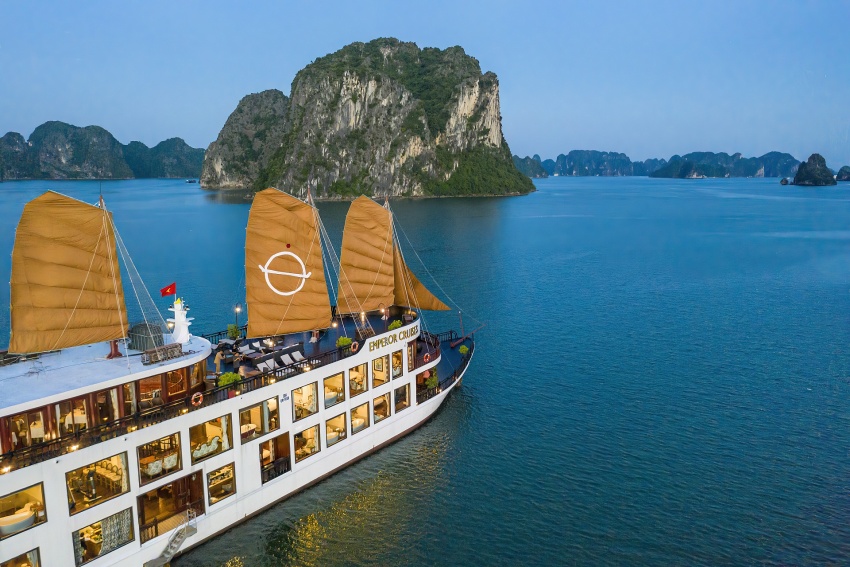 |
| Corporate culture is foundation for travel operators to exploit the luxury market |
On the first days of the Lunar New Year, travel agencies and tour operators welcome and serve hundreds of thousands of international visitors to Vietnam.
Especially, in the first two months of the year, dozens of travellers arrived in Vietnam on land-based luxury cruise lines belonging to Royal Caribbean Group, Hapag-Lloyd Cruises, and Crystal Cruises, among others.
Each international ship carries thousands of high-income and high-spending guests, which is a positive signal for Vietnam's tourism industry.
To hold these opportunities, tourism companies are boosting their morale by offering attractive tourist products to attract guests, such as golf tours and luxury cruise ship travel packages.
In addition, they are also developing several tourism models such as healthcare tourism and duty-free outlets that generate high revenues and help increase the competitiveness of Vietnam’s tourism in the region.
General director of the Vietnam National Authority of Tourism Nguyen Trung Khanh, said, “The tourism industry is on the recovery momentum in the post-Covid era. However, the pandemic changed tourists’ demand, creating new tourism trends and product lines suitable to market needs.”
“After the pandemic, each country's tourism, including Vietnam, returns to the starting line in different ways. Therefore, all travel agencies and operators have equal opportunities, regardless of the size of the business, large or small, long-established or newly established," he said. “In that context, corporate culture must be given more importance, it is the factor that makes a difference and creates a brand for a travel business. A corporate culture truly becomes the fulcrum for tourism businesses to recover and develop.”
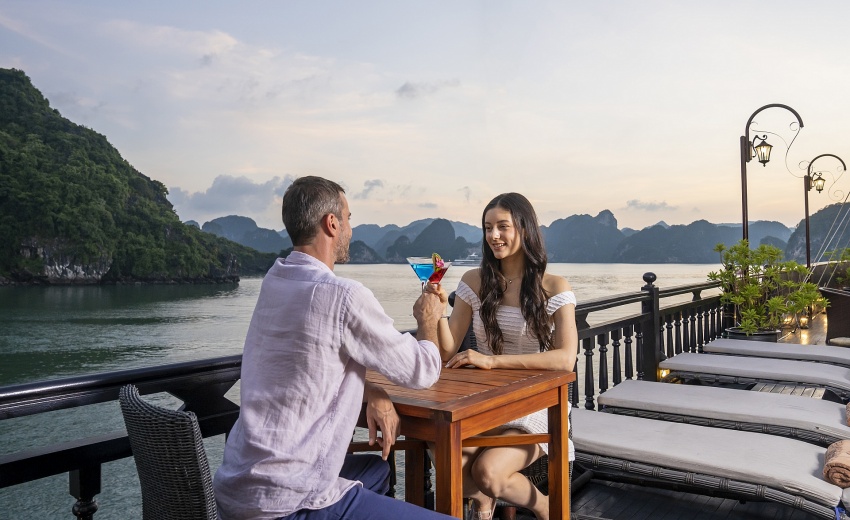 |
Pham Ha, founder of LuxGroup, a luxury travel and tourism company and cruise operator, said that corporate culture played an important role in creating and developing the image of travel companies, especially in the high-end segment. Corporate culture affects the way employees work, communicate with customers, and respond to requests.
“Currently, in a fiercely competitive environment in terms of personnel and tourism experience, with products that are almost completely similar from destinations, hotels, restaurants, talented staff who are imbued with corporate culture will be the key to creating pride, success for business, and happiness,” Ha said.
“In my opinion, to build a corporate culture in tourism activities, business leaders need to establish a clear and long-term vision of corporate culture and communicate it to all employees. This is the basis to create consensus and direction for the company's activities,” Ha said.
“It is necessary to create a positive, comfortable, and trustworthy work environment by encouraging cooperation, respect, and fairness, which will create positive and effective interactions between members. I would like to make staff understand that customers are their bosses and the subject paying salary for them. Thus the service quality will directly impact their income. My biggest goal is that 99 per cent of customers are satisfied with the company's travel experience.”
Building corporate culture is a more important mission for travel agencies and operators, which target high-spending tourists, as revenue has become more and more dependent on quality and attracting high-spending tourists.
Additionally, the trend is suitable for Vietnam’s tourism development strategy for 2030. The 2030 strategy sets a clear focus on premium tourism, instead of general services, aiming to serve tourists with high budgets and long stays.
According to the experts, this segment is huge. However, Vietnam has yet to focus on it because the country is still in the early stages of tourism development. With the updated goals, businesses should be aiming for premium products. The key for businesses is to understand market demands, especially trends and tourists’ preferences.
“High-spending visitors only account for 5-10 per cent of the total number of visitors to Vietnam but the spending ability is at least triple compared to the traditional visitors. High-end customers are people who have money, are educated and experienced, travel a lot, and know exactly what they want, so we must provide high-quality services worth the money spent by tourists. If the travel agencies do not have a corporate culture with professionalism and dedication, they cannot retain this tourist segment,” Ha said.
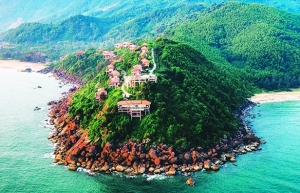 | Luxury island Retreats Although the ghost of COVID-19 is still wandering around the world, Vietnam’s luxury tourism and hospitality sectors seem to be preparing their privacy retreats for the return of travellers in the new normal. |
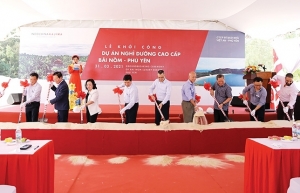 | Indochina Kajima commences Phu Yen luxury tourism project The central province of Phu Yen has hosted a ceremony to launch a luxury tourism project at Bai Nom Beach. |
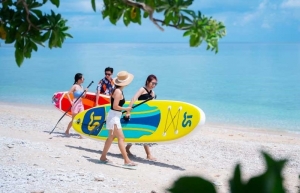 | Ba Ria-Vung Tau: Ready to become the leading luxury tourism centre in Vietnam The tourism industry in Ba Ria-Vung Tau province is making a strong breakthrough in both high-class tourism products and services, bringing visitors world-class resort experiences worthy of one of the most attractive tourist destinations in Vietnam. |
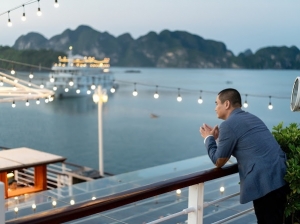 | Golf fosters luxury tourism segment Developing a golf tour will generate leverage to drive forward luxury tourism, contributing to upscaling the country’s position on the global tourism map. |
What the stars mean:
★ Poor ★ ★ Promising ★★★ Good ★★★★ Very good ★★★★★ Exceptional
Related Contents
Latest News
More News
- Visa data highlights five key payment and travel trends in Vietnam for 2026 (January 14, 2026 | 10:42)
- New Year tourism receipts top $40m in key cities (January 06, 2026 | 08:36)
- Vietnamese passport climbs on global ranking (December 16, 2025 | 08:00)
- Manila becomes a new check-in destination for Vietnamese youth (December 11, 2025 | 18:07)
- Vietjet launches mega year-end ticket promotion (December 10, 2025 | 11:33)
- Dalat leads Vietnam’s 2025 search trends (December 09, 2025 | 13:44)
- Vietnam welcomes record wave of international visitors (December 09, 2025 | 13:43)
- Vietjet launches daily Manila flights to celebrate year-end festive peak season (December 05, 2025 | 13:47)
- The destinations powering Vietnam’s festive season travel demand (December 04, 2025 | 18:33)
- Vietnam named among the world’s most exciting winter destinations (December 04, 2025 | 15:10)

 Tag:
Tag:



















 Mobile Version
Mobile Version